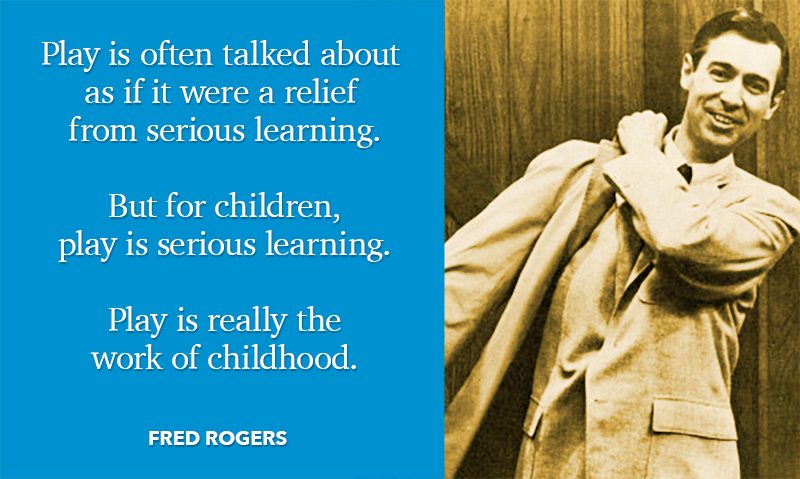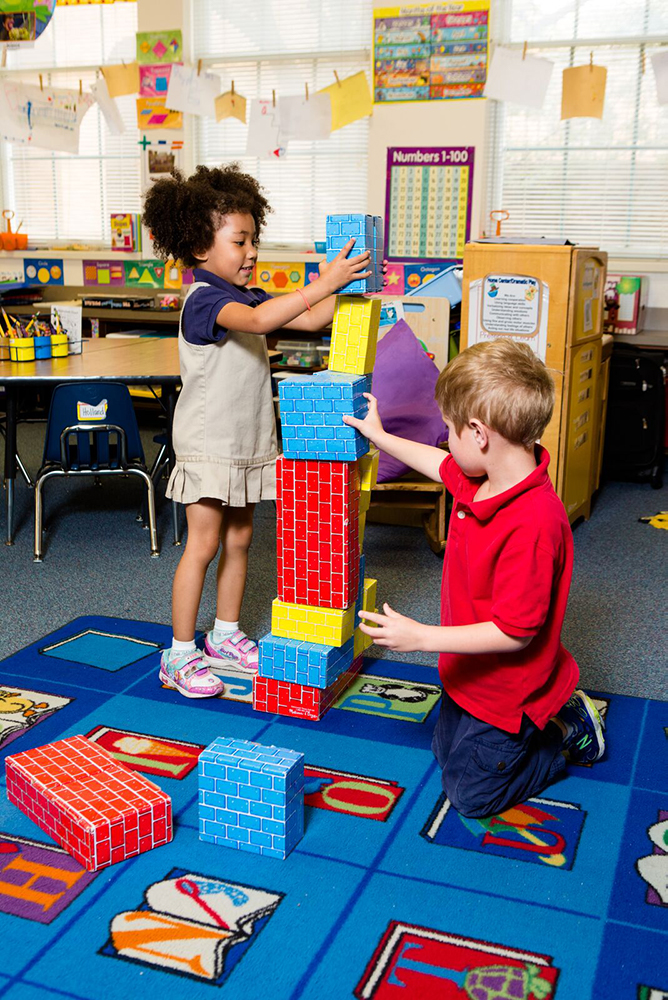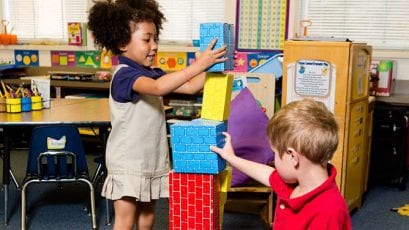Early Childhood
Inspiring Play in Young Learners: Play is Serious Learning!
Play is serious learning!
As a child, I never understood how much Mr. Rogers would impact my life. I would wake up, get my glass of milk and eagerly watch Mr. Roger’s Neighborhood as he would teach me how to view the world through open eyes, how to accept each person for who they are, and how to imagine a world of endless possibilities.

Now that I am a grown adult with children of my own, I can look back on those memories fondly. In fact, as I look forward to the future, I see how Mr. Rogers has impacted my passion for early childhood advocacy.
When you think about the structures, policies, and mandates of a public or private school system, very rarely do you see “play” on the curriculum maps, especially when it is connected to mathematics. In fact, you may only see it associated with the mandatory physical education minutes children need to attain each week to stay compliant within the law.
But I say, the more a child plays with math, the more we are setting them up for success on many accounts.
Communication
Simply put, language ismath for young learners! It is the link between what they see and feel in their environment to what they want to express to their peers or caregivers. Language acquisition is the key to communication for the children in our classroom. Give them many opportunities to play with math in order to allow for opportunities of communication.
Sensory Play
What you need: A cookie sheet, blindfold, different textured items (slime, gelatin, paint, chunky peanut butter, sky is the limit!)
What the children do: With the blindfold on, allow the child to feel the attributes of what is in the pan
What the children say: Encourage them to use descriptive words such as slimy, smooth, cold, and bumpy to describe what they are feeling.
Emotional Regulation
When children are given the opportunity to play, they are given the freedom to be their true selves. They may choose to play alone, play parallel with another child, or play collaboratively with a group. In each instance, children learn how to communicate their feelings to their peers, and in turn learn how to listen to other’s needs and wants. It takes time for children to learn how to regulate their emotions, and in turn, it is important we give them the opportunities to freely play with their peers.
Constructive Play
What you need: A collection of large 3D objects (cereal boxes, oatmeal cans, etc.)
What the children do: Encourage children to build a structure with the 3D materials
What the children say: Encourage children to ask nicely for more cubes or cylinders to place on the structure, or to talk through frustration when the structure falls or is knocked over.

To download cards you can use for emotional communication, click on the resource hub below!
No longer do we need to let play step aside to daunting meaningless tasks. Now we can encourage the act of play with a happy heart and know we are doing right by both the children in our classroom and the districts we work for!
To learn more about how you can utilize play with mathematics, check out In Their Own World: Grocery Store
Click HERE for the downloadable resources for this article!
About ORIGO Education
ORIGO Education is dedicated to making learning meaningful, enjoyable and accessible for all students with Pre-K and Elementary print and digital instructional materials, as well as professional learning for mathematics.
![]()




